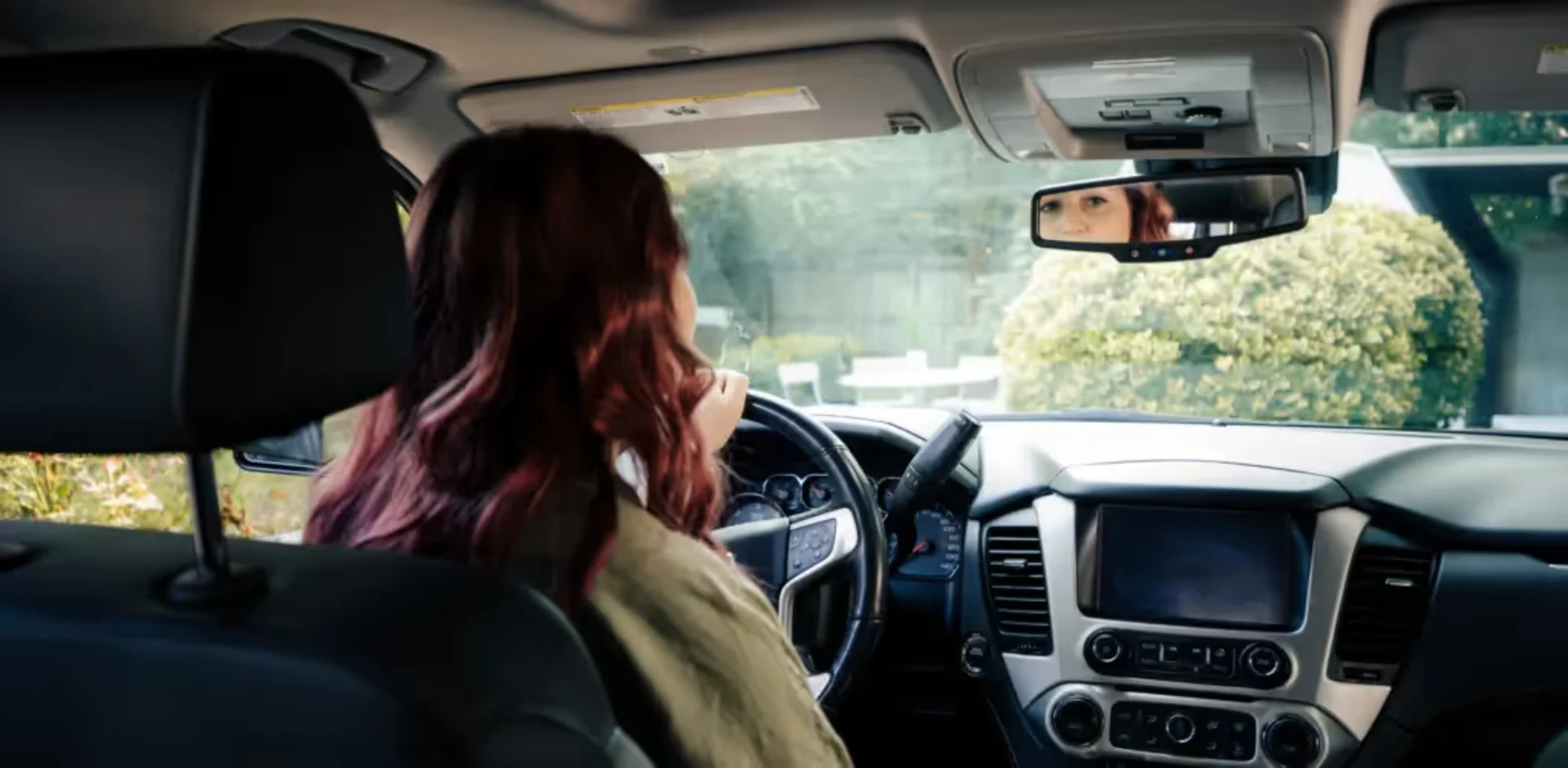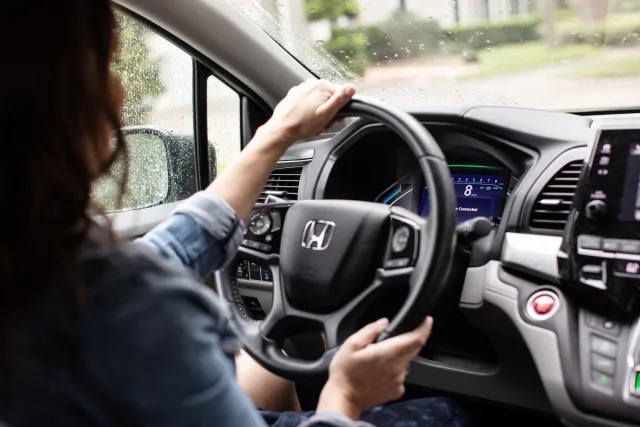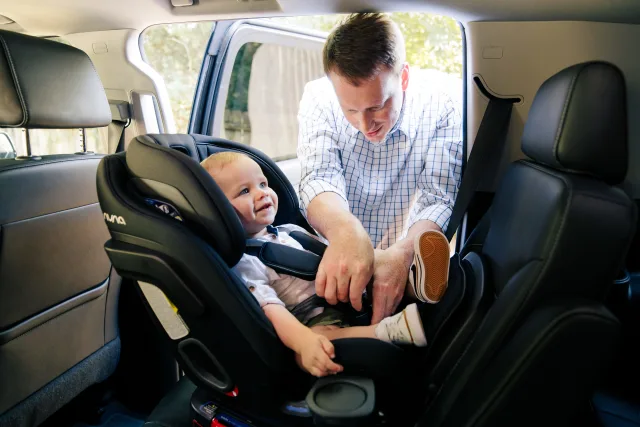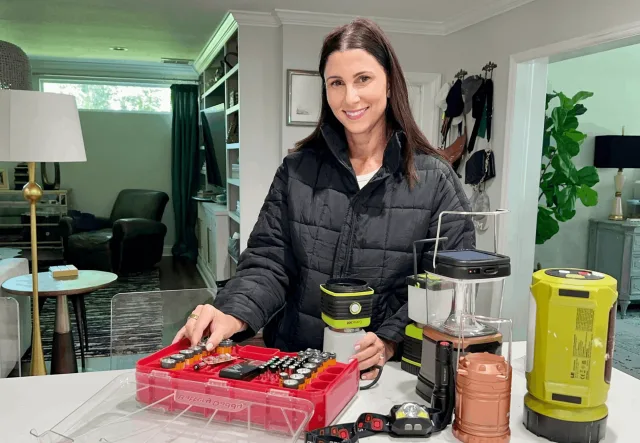Defensive driving is operating your vehicle as though a negative experience is possibly going to happen. Whether you’re trying to avoid your city’s swallowing potholes or risky motorists, driving defensively can help you avoid a lot of unfortunate and even dangerous circumstances.
When you receive your driver’s license, your development of driving skills shouldn’t stop there. You have so much more to learn! Driving is very dangerous, with over 30,000 people in the U.S. alone dying every year from fatal accidents. Even when you’re a great driver, you could still encounter something totally out of your control, like a road hazard, a distracted driver, or even bad weather!
However, learning traffic laws, preparing for potential hazards, and driving defensively can help make you and your family safer. So, today, we’re discussing defensive driving by learning what it is, its benefits, and understanding how we can practice it every day.
5 Benefits of Defensive Driving
1. Fewer vehicle repairs.
When you are a defensive driver, you’ll be in the repair shop less frequently. No, really! When you stay focused and are anticipating road hazards, you’re more likely to see a pothole or piece of debris on the road that could cause damage.
2. Avoid traffic citations.
Part of defensive driving is just following traffic laws. Of course, this saves you time and money since you won’t be getting traffic citations! Going the speed limit, using your blinkers, and coming to a complete stop at red lights are all ways you can be a better defensive driver and avoid a costly traffic ticket.
3. Save on insurance costs.
When you drive defensively, insurance companies will reward you by reducing your insurance rate. This happens indirectly when you’re accident-free, so your premiums stay low. However, some companies have gone so far as to use apps and devices to monitor your driving habits. If you don’t brake hard, speed, and take hard turns, the app will report your good driving to the company and lower your rates. It’s pretty cool!
4. Reduce accidents.
Of course, if you’re driving defensively, you’re much less likely to get in a car crash. Rear collisions are the most common, and if you keep a good following distance and maintain awareness of your blind spots, you can better avoid these incidents. With increased awareness of your surroundings, avoiding dangerous motorists and car accidents gets much easier.
5. Be safer!
Defensive driving keeps you and your passengers safe. When you follow traffic laws, stay aware of your surroundings, and prevent accidents, you’re more likely to get to where you’re going without a scratch—on you or your car.
Defensive Driving Tips
1. Avoid distractions.
One of the best ways to drive defensively is to stay focused on the road. You can do this by eliminating common distractions inside the car. Using your phone, eating, daydreaming, messing with car controls, and even pumping breastmilk can be a distraction. Stay focused on one task at a time. You can find out more about distracted driving HERE.
2. Stay wide awake.
Driving drowsy is just as dangerous as driving drunk. That’s scary! Because although many of us have probably never even thought about getting behind the wheel intoxicated, we’d venture to guess many of you have driven while tired.
When you’re drowsy, your brain doesn’t function properly. You have poor vision, poor reaction time, and poor awareness. It’s so easy to get into a crash or miss something significant when you’re nodding off. Here’s a post about drowsy driving that’ll help you recognize the signs and take action.
3. Expect other drivers to make mistakes.
Though you may be defensive driving, many other motorists won’t be. Here are some shocking statistics that prove that:
- 40% of drivers admit they’ve fallen asleep while driving.
- 82% of drivers admit to having road rage.
- 13% of traffic accidents involved drowsy driving.
- 21% of traffic accidents involve cell phone use.
- 29% of traffic accidents involve drunk driving.
- 29% of FATAL accidents involve speeding.
When you have this information, you can better prepare for the mistakes of other drivers. Expect that they’re making poor decisions and stay on high alert! That way, the moment they make a potentially dangerous mistake, you can react fast and stay safe.
4. Stay calm in frustrating situations.
Road rage is real, and it can have real consequences. If you get angry and decide to speed away, whip between lanes, or tailgate, you not only make one dangerous driver, but usually you make two. If not more!
Plus, when your mind is buzzing with frustration, that’s another dangerous distraction that could lead to an accident. Stay calm and stay focused. Don’t let the mistakes of another driver prompt you to put yourself and your family in danger.
5. Monitor blind spots.
Blind spots are easy to forget about. Make sure every time you make a driving maneuver that involves your front or rear blind spots, that you double-check them. The most common encounters you’ll have with your blind spots will be when you’re turning at a stop sign, proceeding through a crosswalk, and when you’re changing lanes on the highway. Be extra alert at those times!
6. Follow all safety recommendations inside the car.
Defensive driving is all about preparing for the worst-case scenario. A good defensive driver will not only make sure that they actively drive safely but that everything in their vehicle is safe for whatever they may encounter. Ensure your car is free from projectiles, everyone is seated and buckled properly, and, if you have littles in car seats, avoid common car seat mistakes! All these things will reduce the risk of injury and fatality if you get in a crash.
7. Maintain good following distance and slower speeds.
If there are cars in front of you, try to leave 3-5 seconds of following distance between you and other cars. This ensures that if the car ahead of you does something unexpected, you can react and brake before you hit their rear end! Driving at a slower speed will have the same effect. When you drive slower, you have more reaction time.
8. Plan for potential weather challenges.
Weather is one of those things you cannot control, but they do predict it for us! If you know there is a chance you’ll encounter hazardous conditions like snow, rain, fog, and more, prepare accordingly.
What your child wears in the seat matters! Bundle up and buckle up safely! Put their coat to the test and learn what not to wear in our Winter Safety Guide.
9. Keep your vehicle well-maintained.
Keeping your vehicle in tip-top shape is another way you can be proactive and drive defensively. Here is a list of regular car maintenance techniques to ensure your vehicle is safe and ready for anything:
- Get your oil changed when required.
- Keep your tires inflated to the optimal level.
- Don’t let your gas tank get too close to empty.
- Get your brakes checked regularly.
- Fill your washer fluid.
- Check all other fluids.
- Replace wipers whenever they stop working well.
10. Take a defensive driving course.
Defensive driving classes can be taken as an online course or in-person at a traffic school. These classes are usually around 2-8 hours and they teach you all about accident prevention! You’ll develop essential and advanced driving skills to keep you and your family safe. Often, professional drivers take these courses, but there’s no question that all commuters would benefit from a defensive driving course.
Defensive driving prevents costly repairs, traffic citations, and dangerous accidents.
Are you ready to start driving defensively? We hope so! It takes some discipline, but with the right education and focus, you can do it! Whether you are going on a long road trip or running everyday errands, defensive driving is key for a safe ride every time.
For more vehicle and car seat safety tips, check out the Safe in the Seat website, which has helpful articles and beneficial courses to keep all your passengers safe in their seats.
Affiliate links are included above. Safe in the Seat earns a small commission when you purchase through these links with no cost to you. We so appreciate your support.





